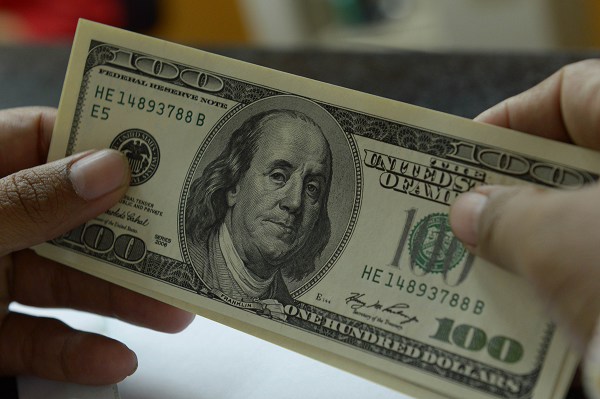Friday, 16 October 2015 12:15
 TOKYO: The dollar rebounded from 7-week lows on Friday thanks to stronger-than-expected US inflation data and after European Central Bank policy maker Ewald Nowotny raised expectations for further euro zone easing.
TOKYO: The dollar rebounded from 7-week lows on Friday thanks to stronger-than-expected US inflation data and after European Central Bank policy maker Ewald Nowotny raised expectations for further euro zone easing.
The dollar index stood at 94.487 after bouncing from 93.806 touched overnight, its lowest since late August.
Indicators on Thursday showed a surprise 0.2 percent rise in the September US core consumer price index, boosting the year-on-year gain to 1.9 percent and pushing it closer to the Federal Reserve’s 2 percent goal.
The upbeat inflation data gave the dollar some relief, which has been battered by a run of poor US indicators and concerns about China’s economy undermining prospects of the Fed hiking rates this year.
“It is doubtful the market tried to factor in the possibility of the Fed raising rates this year on the inflation number, but the Fed is ‘data dependent’ so it reacts positively to upbeat data,” said Shinichiro Kadota, chief Japan forex strategist at Barclays in Tokyo.
“Nowotny’s comments also hurt the euro, so the stage was set for participants to cover shorts in the dollar,” he said.
The euro slipped 0.1 percent to $ 1.1380, having slid from a 7-week peak of $ 1.1495 scaled the previous day after ECB’s Nowotny said it was “obvious” the central bank must seek more ways to stimulate the euro zone economy.
The common currency was on track to end the week effectively flat.
“Nowotny’s comments hit the euro just as it was beginning to firm, and the currency could weighed down if other ECB official hint at the need for further easing,” said Masafumi Yamamoto, a senior strategist at Monex in Tokyo.
The market is keeping an eye on ECB executive board member Benoit Coeure’s speech later in the day.
The greenback rose 0.2 percent to 119.13 yen, pulling away from a 7-week trough of 118.065 struck overnight. The US currency was still poised to lose 0.9 percent this week.
The New Zealand and Australian dollars lost some lift as they ran into profit taking after two days of large gains.
The kiwi inched down 0.2 percent to $ 0.6835 after flying to a 3-month high of $ 0.6897 earlier this week on expectations that the Reserve Bank of New Zealand might pause in cutting rates.
The Aussie was down 0.5 percent at $ 0.7292. It was still on track to gain 0.5 percent on the week, having drawn support from firmer commodity prices and growing doubts the Fed will raise rates this year.





























